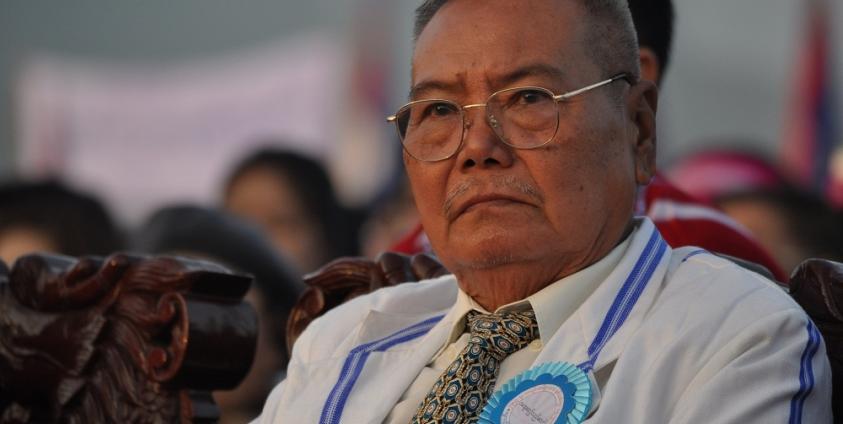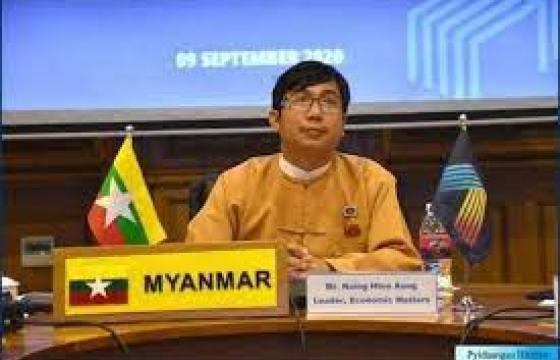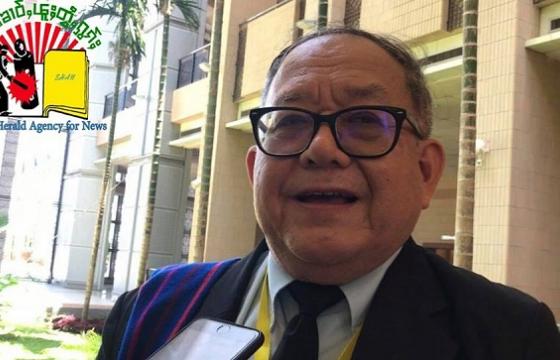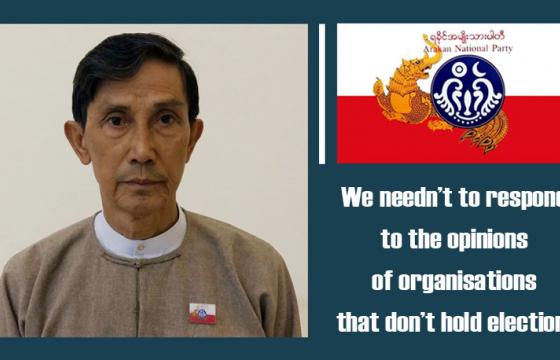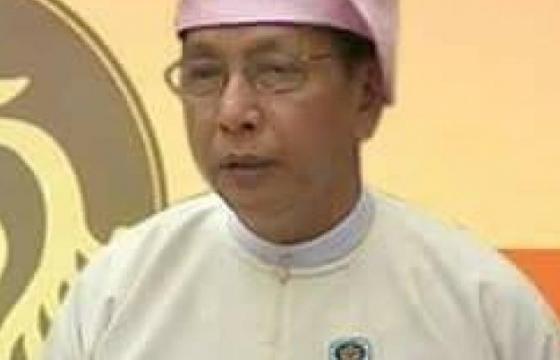Karen News (Karen Information Center - KIC) sat down with P’doh Saw Ar Toe, head of the Karen National Union (KNU)’s Interior and Religious Affairs Department, to talk about preparations for the upcoming ceremony honoring the Karen National Police Force (KNPF). This interview has been edited for length and clarity.
Q: First of all, could you start with an explanation of how the Karen National Police Force (KNPF) was established.
A: The KNPF was established on September 9, 1991. It was founded during the KNU’s 10th Congress, but it wasn’t officially recognized at that time. We designated September 9 KNPF Day during the 16th Congress.
Q: What are the roles and aims of the KNPF?
A: The KNPF has many responsibilities in order to [uphold rule of law].
The aims are rule of law, regional stability and protecting all people. Drug eradication is also one of our aims. Another aspect of their role relates to the nationwide ceasefire agreement (NCA). We will carry out the ceasefire by supporting peace and stability.
Q: How will you mark the KNPF Day?
A: The KNPF Day will be marked for the first time with a central-level ceremony on September 9. The KNU’s Interior and Religious Affairs Department will lead this. All seven KNU districts will join together to hold the ceremony. We plan to mark this day in all districts every September starting next year.
Q: Why did you choose Baw Daing in Kawkareik township as the venue for this year’s KNPF Day celebrations?
A: At first, we discussed holding the KNPF Day at the Lay Wah headquarters … [but] our Karen people are widespread in the chosen area. We are holding it there to raise public awareness about the aims and duties of the KNPF.
Q: What arrangements have you made for the KNPF Day?
A: We want to hold a big ceremony. Our police force is an armed force so we have added a military parade the program. But we will hold the military parade without arms in order not to breach the terms of the bilateral rules and regulations between the KNU and the government, and to prevent mistrust growing between each side.
The honorary ceremony we are holding is not to prepare for military warfare. It’s not an expansion of military power. It’s concerned with not only the Karen public, but all people. That’s why we hope that there won’t be any disturbances of our program.
Q: Anything else you want to say to the Karen public about the upcoming honorary ceremony?
A: This ceremony is the first centralized ceremony to honour the KNPF. Public cooperation is needed in order for our police force to carry out its duties. The KNPF’s role is very diverse. It’s impossible for them to carry out their duties without the public’s support. So I want to urge the public to cooperate with our Karen police force.
The Karen community includes both the Karen people living in our country, and those living abroad. It would be great if those who are living abroad could also support our police force by listening to the KNPF’s activities and providing the required assistance.
Our department doesn’t have any funds at the moment. I believe the organization and the public will assist us in holding this ceremony. When we discussed this program at Thone Set Thone Su on August 16, the public and organisations were very active [in the discussion]. I believe the public will support us. And I want to urge the public to continue to support us after the ceremony is held.

